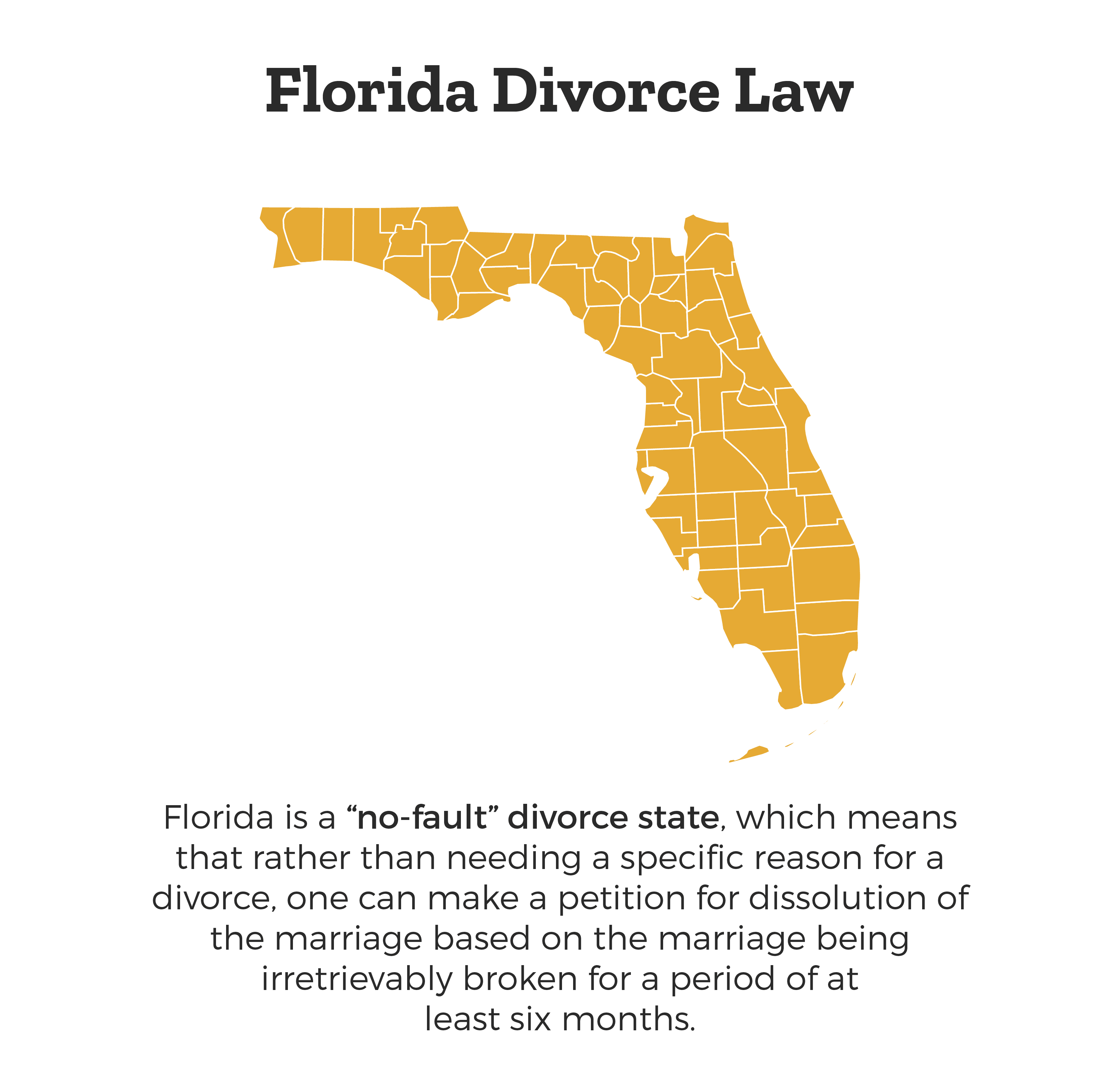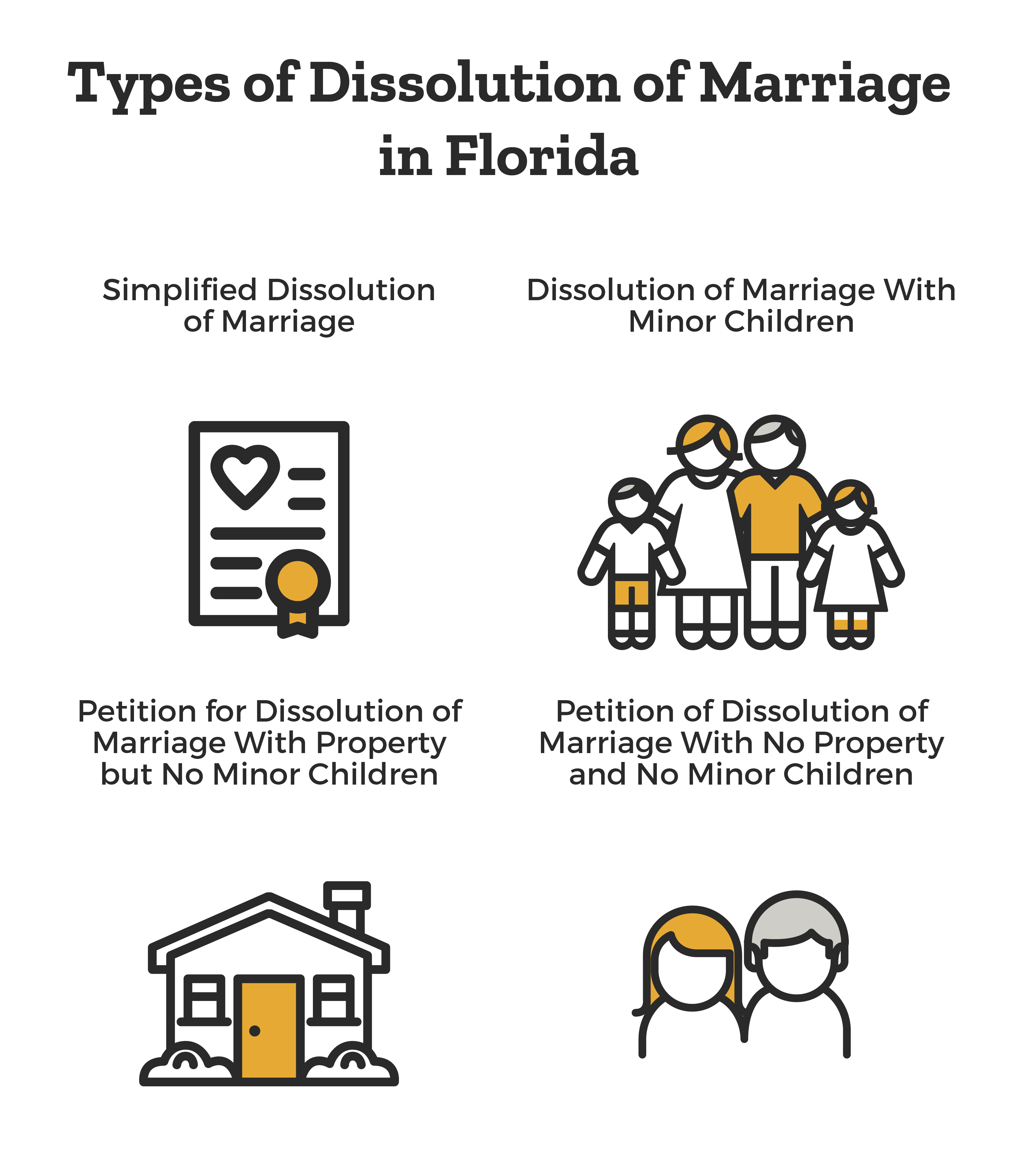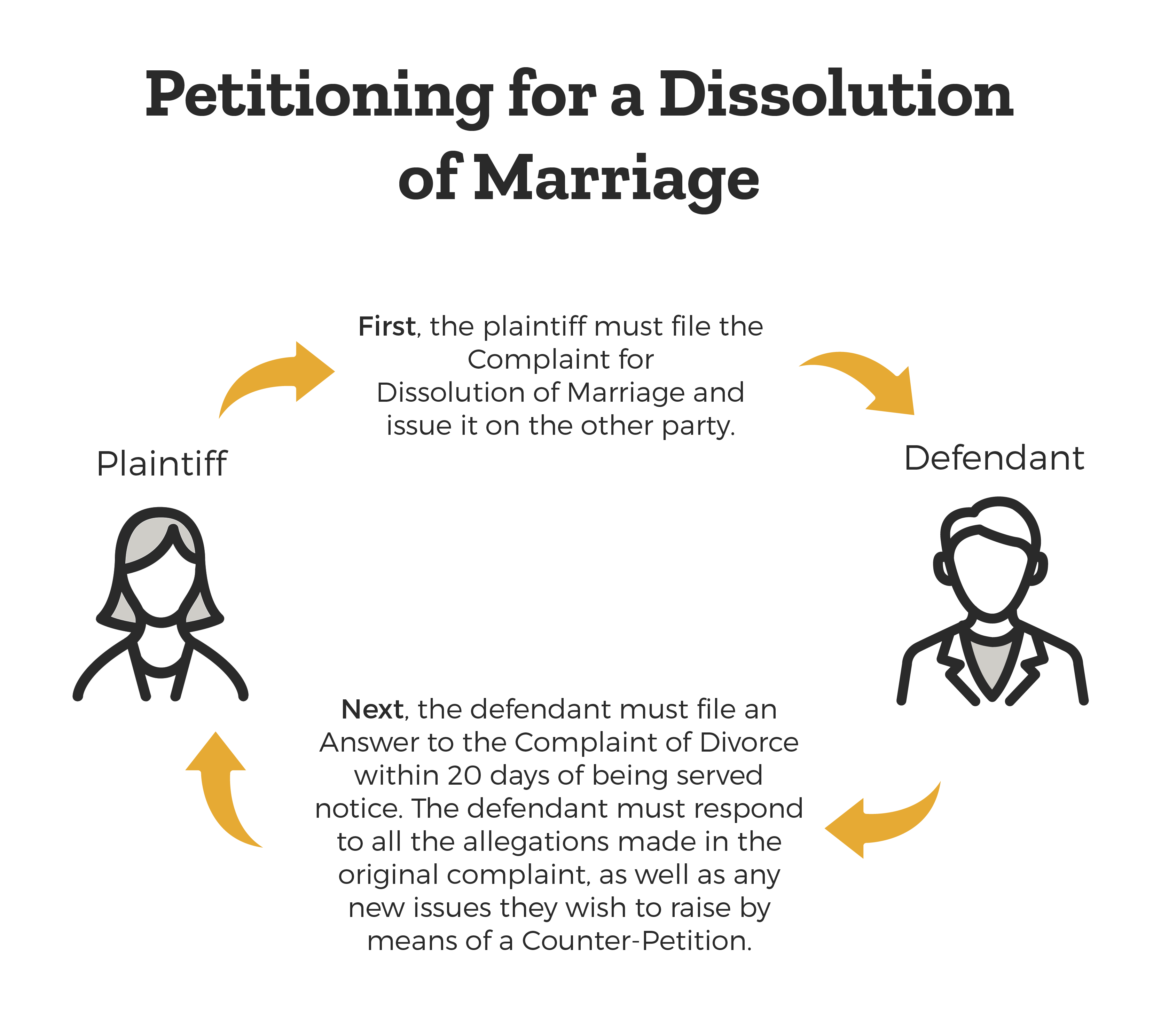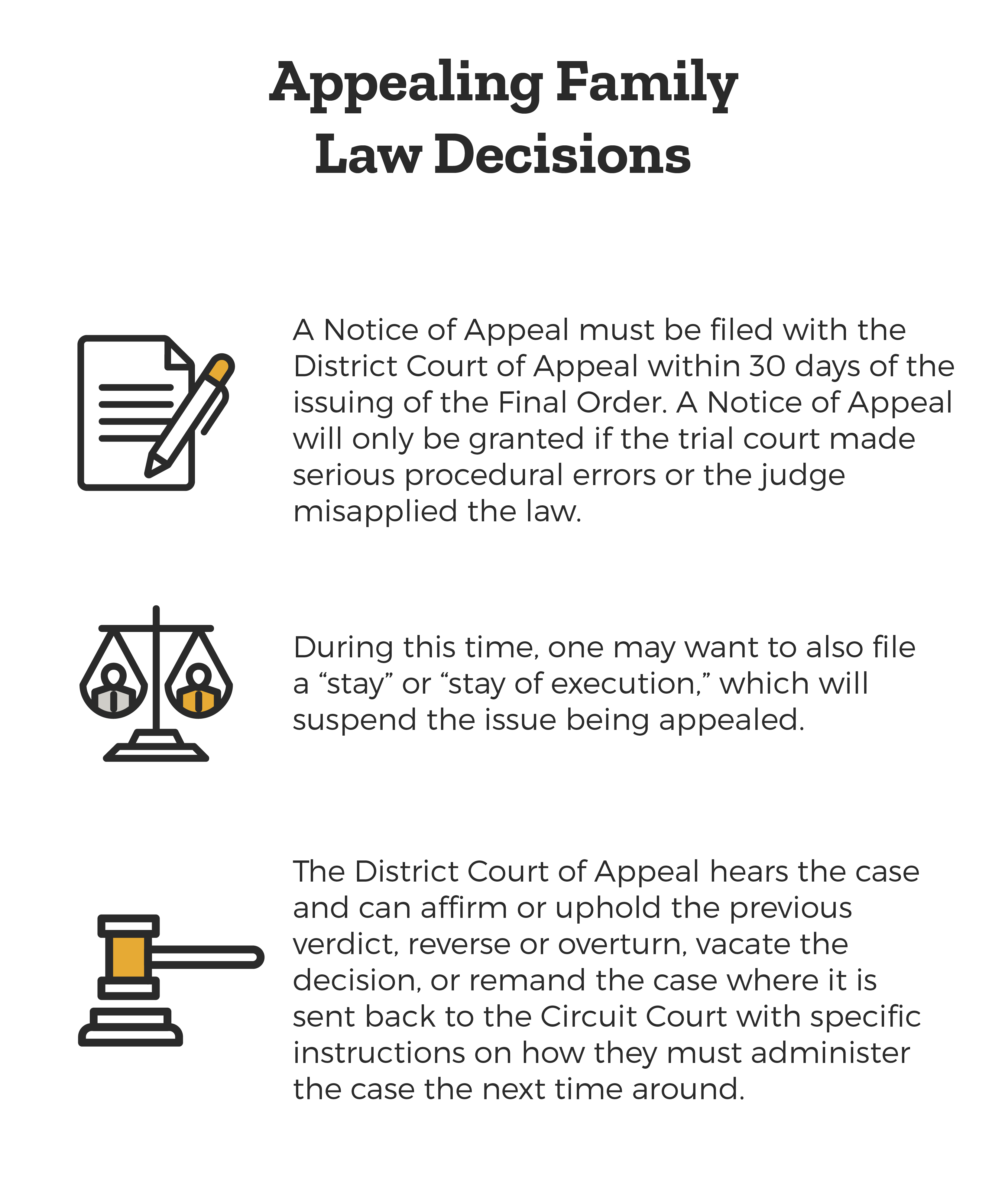Family law issues include divorce, child custody, child support, adoptions, and domestic violence. Each state has the authority to govern family law cases between its residents. In Florida, family law issues are considered civil matters of dispute and brought and heard in the state circuit courts.
Divorce

In Florida, a divorce is formally called Dissolution of Marriage. Florida law has jurisdiction or power to hear the matter if at least one spouse has lived in Florida for at least six months before filing the petition to divorce. Florida is a “no-fault” divorce state, which means one does not need to state grounds or reasons for the marriage ending. Rather, one can make a petition for Dissolution of Marriage based on the marriage being irretrievably broken for at least six months. Only one party needs to demonstrate that the marriage has broken apart.

The person who files divorce papers is called the plaintiff, and the other spouse automatically becomes the defendant. In Florida, there are four forms to choose from when filing a Petition for Dissolution of Marriage. The categories are: Petition for Simplified Dissolution of Marriage; Petition for Dissolution of Marriage With Minor Children; Petition for Dissolution of Marriage With Property but No Minor Children; and Petition of Dissolution of Marriage With No Property and No Minor Children.
One must select the appropriate category for his or her life and circumstances, depending on whether they have children or share common property with their spouse. In these circumstances, there will be different requirements depending on which form is used.
In Dissolution With Property, parties are required to provide documentation of assets and finances. Any prenuptial agreement that exists between the parties must be submitted and argued whether it is enforceable.
In Dissolution With Minor Children, each party must first attend a “parenting class” regarding the implication of children and divorce. Florida statutes mandate that both parties must attend the parenting class before issuing a divorce. The class instructs on court procedure regarding parental rights and responsibilities, child support enforcement, and parenting time-sharing discussions.
A Petition for Simplified Dissolution of Divorce is a less complicated divorce proceeding than a Dissolution of Marriage With No Property and No Minor children. Essentially, Simplified Dissolution is an uncontested divorce with both parties agreeing on the divorce terms. One can qualify to file for a simplified divorce if: both parties agree that the marriage is broken; both parties agree to sign the petition (the divorce is uncontested); there are no minor children from the marriage; there is full agreement between parties how to divide assets and finances; there is no party seeking alimony; both parties agree to attend the final hearing for issuance of judgment of divorce; or both parties agree not to go to trial. Both parties in Simplified Divorce must file their petition along with a Marital Settlement Agreement (MSA), detailing to the court that all issues have been resolved, and they just need to issue the final judgment of divorce at a final hearing.
Divorce Process

Dissolution of Marriage (other than Simplified Dissolution) in Florida has many requirements and procedures. First, the plaintiff must file the Complaint for Dissolution of Marriage and issue it on the other party. Next, the defendant must file an Answer to the Complaint of Divorce within 20 days of being served notice. In the Answer, the defendant must respond to all the allegations made in the original complaint, as well as any new issues they wish to raise by means of a Counter-Petition.
If a defendant does not provide an answer to the complaint, the opposing party may file for a Judgment of Default against them. In Default, a judge may grant a judgment against the non-responding part for the relief requested in the original complaint.
Mandatory Financial Disclosure
Florida mandates full and complete financial disclosure between divorcing couples. Each party must provide all their financial information within 45 days of the service of the petition. For couples with minor children, they additionally must fill out a child support guideline sheet to help the judge calculate what the appropriate child support award will be.
Mediation
Florida is a state that highly encourages parties to work together on resolving the important issues of divorce, particularly property distribution and child time-sharing. Thus, most litigants of family law cases involving divorce, child custody, or child support are almost always ordered to attempt mediation first. Going through dispute resolution may resolve family issues between parties without having them go through the major expense, time, and stress of a trial. If no agreement is made in mediation, however, then the case will proceed to trial in the family court.
Trial
At trial, both sides will share discovery, present their evidence, and may call witnesses. The court will then issue an order clarifying asset distribution and child custody and parenting time plans. The judge will also issue a child support order if the people have children. After the trial, the judge will always award the Final Judgment of Divorce, which is the official declaration that the marriage is legally dissolved.

Child Support and Custody Disputes
Florida family law issues involving child custody, parenting plans, paternity, adoptions, and child support enforcement are also heard in the circuit courts. Child cases may include parties going through a divorce or between unmarried couples who share minor children. If it is an issue that arose after a divorce or an original child support or custody order, it is called a post-judgment motion. Post-judgment motions involve cases that have special changed circumstances that arose after an original order, and a party is seeking a modification from the court.
Florida law believes that minor children have the right to have frequent and continuing contact with both parents when possible. Florida uses the best interest of the child standard when looking at cases involving the upbringing of children. Florida law presumes that it is in the best interest of the child that both parents share contact and parental rights and responsibilities. Thus, sole custody is not favored unless it is in the absolute best interest of the child to only have one legal custodian.
Alternative dispute resolution, or mediation, is usually court ordered for parents in child family law cases before going to a hearing. It is believed that parents should first try to develop a parenting plan or child support arrangement before being heard in a court. If an agreement is not made, or if there are outstanding issues, then a family law judge will decide the case.
Appeals
Litigants who feel they did not receive a fair trial within the circuit courts can appeal to a higher court, the district court of appeal. An order must have been a “final order,” or final judgment, to be considered for appeal. A Final Order is one in which no other issue on the petition is currently being argued before the circuit court.
A Notice of Appeal must be filed within the district court of appeal of the same county of where the trial court originally heard it. Additionally, it must be filed within 30 days of the issuing of the Final Order. During this time, one may want to also file a “stay” or “stay of execution,” which will suspend the issue being appealed, such as temporary custody of child support enforcement, until the issue is heard before the appeal’s court.
A Notice of Appeal will only be granted if the trial court made serious procedural errors or the judge misapplied the law so much that justice would require it to be remedied. Appeals are not granted for people who are just unhappy with the decision and want a different court to hear it. As such, only certain cases can be granted an appeal.

When the district court of appeal hears a case, they will issue a verdict that might “overturn” or change the original order, or they may “remand” the case, sending it back to the circuit court with specific instructions on how they must administer the case the next time around. Rarely can one appeal a family law case to the Florida Supreme Court, which would only be granted if there was a serious error that the state court would preside over a family matter.
Domestic Violence
The family division of the Florida circuit courts also hears issues of domestic violence. “Domestic violence” is violence or physical abuse that occurs between a spouse, an ex-spouse, current or former romantic partner, or any blood relative. Assault, battery, rape, kidnapping, and stalking are considered examples of domestic violence.
If you or someone you know has been a victim of domestic violence, then it is important to immediately contact local law enforcement and obtain an injunction against the abuser. An Injunction for Protection, or restraining order, can be filed and granted by the court to prevent the person from coming in contact with you. Law enforcement, legal aid, or social workers can help you file the court information to obtain a restraining order. You must demonstrate that the person has committed an act of physical violence and that you fear for your safety. Additionally, the local authorities can potentially prosecute any violator with any criminal charges as a result of the violence committed.
Legal Assistance
Family law attorneys can help with the legal process and appear in court on your behalf. Family lawyers are heavily concentrated in the Florida domestic relations law specialization.
A self-represented person, also called a pro se, can find helpful information, including the requirements of filings on the Florida courts official webpage. Additionally, litigants can find useful information with the Florida Bar Association, or with a local legal aid office.
